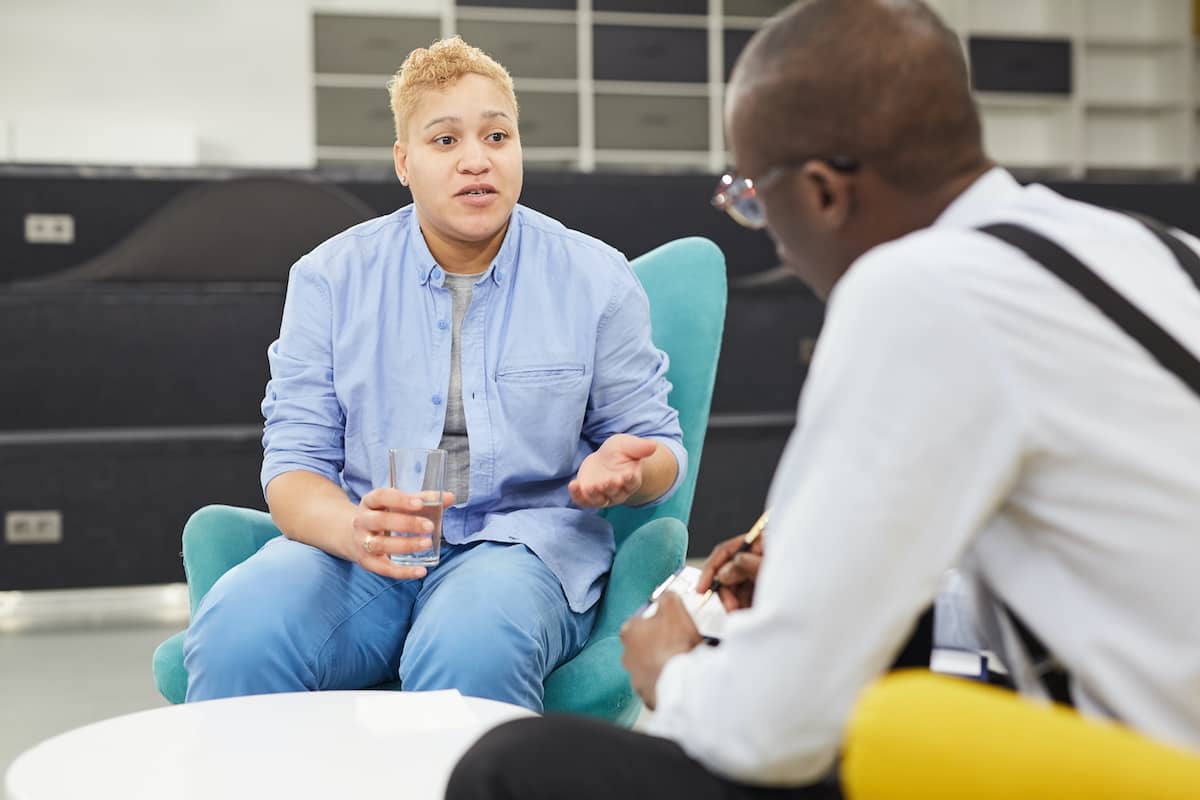Cognitive Behavioral Therapy
Cognitive Behavioral Therapy
At the Center for Anxiety, each member of our clinical staff is exceptionally trained in the application of Cognitive Behavioral Therapy (CBT) for anxiety disorders and many other concerns. Our goal is to help our patients get better quickly, with reduced symptoms and dramatic improvements in their daily lives. We teach patients concrete skills, firmly grounded in current evidence-based practices, and ideographically tailored to each patient’s unique needs accounting for family, social, economic, cultural, and spiritual/religious factors. Although we do not prescribe medication, we work closely with other treatment providers to coordinate care.
In addition, individual clinical team members have unique strengths and areas of expertise. Treatment is tailored to each patient’s individual circumstances, and progress is tracked using our assessment tools to ensure improvement. Clinical services target an array of common problems in adults, adolescents and children, including anxiety disorders, depression, marital discord, specific childhood disorders, and serious mental health conditions. For a complete list of what we treat, please click here.

What is Cognitive Behavioral Therapy (CBT)?

CBT is a collection of evidence-based treatments, all of which help people to change their feelings by modulating their patterns of thinking and behavior. Our office offers the following specific CBT approaches:
- Cognitive Therapy (CT)
- Behavioral Activation (BA)
- Exposure Therapy (ET)
- Exposure and Response Prevention (E/RP)
- CBT for Insomnia (CBT-I)
- Habit Reversal Training (HRT)
- Mindfulness-Based Cognitive Therapy (MBCT)
Our clinical team is staffed by highly skilled and compassionate clinicians, and includes a full time patient care manager and a full time research assistant to monitor patients’ experiences and clinical outcomes, in order to provide concierge level care. We treat patients with respect and empathy, ensuring that each patient receives the tools and strategies they need to manage their symptoms.
We use the following forms of CBT, which clinical research has found to be helpful in treating anxiety, depression, and other mental health concerns. None of these treatments involve any medication directly, though some individuals may use medication while engaged in CBT.
Types of Therapy Include:
Cognitive Therapy
Cognitive Therapy is a practical, short-term approach to treatment that has been proven effective in treating a wide range of issues including anxiety, depression, insomnia, and relationship difficulties. In CT, the goal is to identify and change patterns of thought that can perpetuate and exacerbate symptoms over time. By exploring the relationship between a person’s thoughts and feelings, CT helps patients become aware of inaccurate or negative thinking. Our therapists work with patients to develop more constructive ways of thinking, resulting in less distress and more positive emotions. As with other forms of CBT, cognitive therapy is present-focused, meaning patients are encouraged to identify what they can do right now to change how they feel. CT is seen as a collaborative enterprise between the therapist and the patient.

Exposure Therapy
Exposure Therapy is a form of Cognitive Behavior Therapy that is particularly useful in treating phobias, social anxiety, panic disorder, and other anxiety disorders. In exposure therapy, the patient slowly and systematically confronts situations, objects or thoughts that are anxiety-provoking under the careful guidance of our trained therapists. In doing so, patients learn to respond more appropriately to their triggers as they become desensitized and anxiety levels are reduced. During treatment and also between-sessions, the patient practices confronting their fears in a controlled environment so that they gain the confidence to manage stressful situations on their own in the real world.
Exposure and Response Prevention Therapy (E/RP)
Exposure and Response Prevention (ExRP) is a type of Cognitive Behavioral Therapy that is very effective in treating obsessive compulsive disorder. ExRP utilizes the same exposure techniques detailed above in the Exposure Therapy section. The ExRP protocol is different from Exposure Therapy, however, in the addition of a response prevention element. Response prevention targets the compulsive response that is typical of an OCD presentation, and helps individuals to gradually decrease and eventually eliminate their compulsive behaviors.
Habit Reversal Treatment (HRT)
Habit Reversal Training (HRT) is a form of Cognitive Behavioral Therapy to treat repetitive impulse control disorders such as trichotillomania (hair pulling), excoriation (skin picking), tics, Tourette Syndrome, and other forms of body-focused-repetitive-behaviors (BFRBs). HRT is a multi-stage process aimed at increasing patient awareness, cultivating substitution behaviors, and stress management. First, therapists work with patients to increase the awareness of sensations that accompany the repetitive behavior. The therapist might also help the patient to identify factors that increase the frequency of the unwanted behavior, antecedents for the behavior, as well as consequences that arise as a result of the behavior. Then the patient is taught to replace the impulse with a more appropriate behavior that is incompatible with the unwanted behavior. Finally, we teach stress management techniques, such as deep breathing, muscle relaxation and imagery to help reduce the frequency and intensity of impulsive behaviors.

Behavioral Activation (BA)
Behavioral Activation is an evidence-based treatment effective in managing and treating depression, even for patients who have not found success with other approaches. BA focuses almost entirely on patients’ behaviors, as a way of changing their mood. BA involves monitoring daily activities, identifying goals and values, and purposefully scheduling times for meaningful and/or pleasurable activities during the day. When patients engage in more pleasant events, their emotions often become more positive as well as a result. As the saying goes, “action precedes motivation.” Our therapists work with patients to create personalized daily schedules, and hold patients accountable for integrating pleasant events into their daily lives as a way of combating depressive symptoms.
Mindfulness-Based Cognitive Therapy (MBCT)
Mindfulness-Based Cognitive Therapy combines Cognitive Behavioral Therapy techniques with mindfulness strategies so that patients can more calmly manage their thoughts and emotions during periods of anxiety or depression. Patients are taught mindfulness techniques such as meditation and breathing exercises, and learn to break negative thought patterns by understanding the interaction between thoughts, feelings and behaviors. Mindfulness allows people to focus on the present, rather than worrying about the past of the future, while CBT helps in reframing negative thoughts. Research has found MBCT to be particularly effective in reducing recurrence of depression (i.e., prevention of future depressive episodes).
CBT for Insomnia (CBT-I)
CBT for Insomnia (CBT-I) is a specific form of CBT meant to target problematic sleep patterns that are typical of individuals with insomnia. Like all forms of CBT, the treatment is short-term, structured, and evidence-based. Therapists work with patients to change unhelpful thoughts about sleep, and work with patients to alter negative associations they have with sleep through stimulus control. Through CBT-I, therapists also help patients to set sleep restrictions to limit the time spent in bed awake and promote a more consistent sleep schedule. Relaxation techniques are also used to reduce anxious rumination that tends to occur when patients are unable to sleep. Patients often see a reduction in time that it takes to fall asleep at night, as well as spent awake during the night, and an increase in consistent, restful sleep.
Our Locations
Private, discrete, and accessible care.








